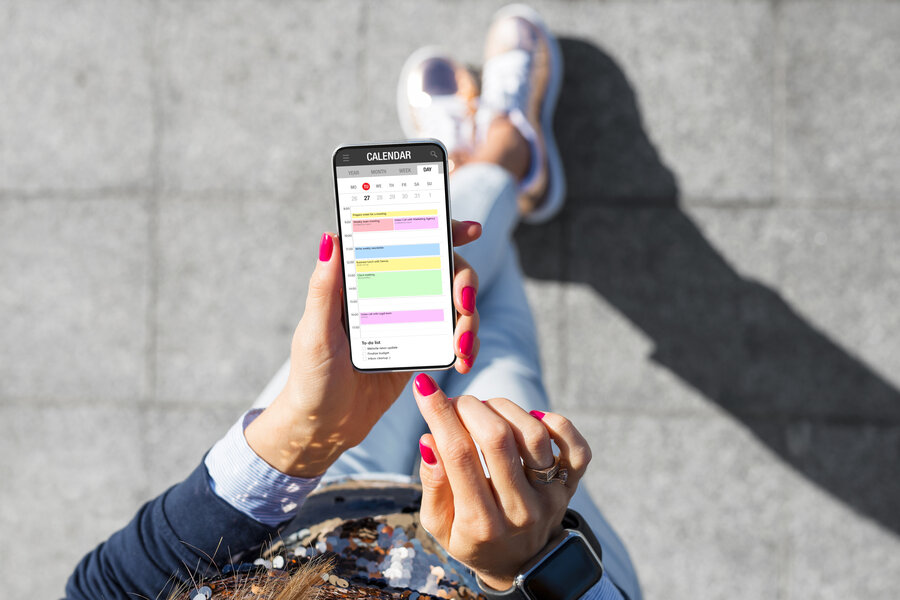Travel
Should You Be Cycle Syncing Your Travels?

If you are a person who menstruates, it’s likely the arrival of your period has, at some point, put a damper on a camping or beach trip. And depending on your symptoms, it’s possible you might even go as far as to plan your travels around it. In this new age of wellness and listening to our bodies, the art of tracking one’s period has gotten a lot more in-depth. TikTok, for one, is obsessed with cycle syncing, offering up everything from expertly charted workout plans to hormone-balancing carrot salads. And it turns out, this level of attention to hormone fluctuations can be applied to travel, too.
To help us learn a bit more about the ways cycle syncing can be incorporated into trip planning, we reached out to Dr. Maura Henninger, founder of Flora Naturopathics. “Traveling is stressful on the body for a lot of different reasons, but disrupted routine is probably the biggest one—moving time zones, all of that—which can really affect hormone balance,” she says. There really are, Henninger explains, better and worse times to travel as a woman. Your menstrual cycle shouldn’t stop you from living your life, of course. But if there’s a little wiggle room in your travel schedule to accommodate an “optimal” you, then here’s what to consider.
What exactly is cycle syncing?
“Cycle syncing is a method where women can adjust their lifestyle, diet, and movement according to the phases of their menstrual cycle,” Henninger says. “So the idea is basically, you’ll align activities with hormonal fluctuations to optimize everything from energy to productivity.”
The menstrual cycle, which can last between 21 to 35 days, is divided into four phases: menstrual (roughly days 1 to 5); follicular (roughly days 6 to 14); ovulatory (roughly day 15 to 17); and luteal (roughly day 18 to 28). Cycles vary from person to person, so none of this is cut and dry—nor is it an end all be all. But medical experts tend to agree that if you really start to pay attention, you’ll likely identify certain patterns that you can use to your advantage.
Your follicular and ovulatory phases are prime time
Think of your follicular phase as the light at the end of the tunnel. You’ve just finished your period and are ready to start fresh, charting new territories and saying yes to things like scuba diving with sharks. “Estrogen levels rise in this phase as the body prepares for ovulation,” Henninger says. “So your energy increases, your brain function increases, creativity increases, all that stuff.” This is when you’re going to want to pull out your notebook on that long train ride, jotting down all those travel-inspired ideas that come to mind.
This will bring you into your ovulatory phase, i.e. mid-cycle, which is when you should, theoretically, feel as though you’ve tapped into your power. “Your estrogen peaks and your luteinizing hormone spikes, which triggers ovulation. People tend to feel at their peak energy at this time, wanting to engage in social activity,” Henninger says. “Your body’s just going to be a little bit more resilient and upbeat, I would say, psychologically.” Delayed flight? Who cares.
Your luteal and menstrual phase are…not so prime time
You don’t want to be trudging through an airport during your luteal phase. “It’s really like the wind down period,” Henninger says. “Your progesterone levels are increasing in this phase, and technically, your body’s preparing to either get pregnant or to menstruate, so it’s a time to downshift.” When it comes to travel, that means your body might be a little less tolerant to stress. “Sleep becomes especially important in the luteal phase, as the body can be more prone to insomnia,” the doctor says, so make sure you pack your sleep mask and earplugs, and prioritize more low-key activities. And if you’re prone to traveler’s constipation, things are likely to get worse in the luteal phase. “Progesterone tends to slow motility,” Henninger says.
And then it’s time to menstruate, which we don’t have to spell out; it’s not ideal to explore the world while you’re bleeding and/or have cramps. “You’re just going to feel more tired, wanting to kind of sequester and be cozy,” Henninger says. “So if you’re traveling during that period of time, I recommend scheduling in time for rest.” At this time, estrogen and progesterone bottom out, and you’re losing a lot of iron, which ultimately puts you in recovery mode.
Tips for balancing your hormones on the go
But things happen, flash flight deals drop, and sometimes we can’t always honor the sacred cycle. But there are ways we can combat that spike in cortisol, which Henninger says often happens when we travel. She advises her patients to find small ways to manage stress, like getting a little movement in during the flight, or prioritizing sleep. Make sure you’re always drinking water, because dehydration can worsen PMS symptoms, and an increased uptake of caffeine won’t do you any favors, either. “That’s one of the things a lot of my patients do, is go crazy on the caffeine to adjust to time zone changes,” Henninger says. “And that’s really the opposite of what you should do, because that can interfere with hormone balance.”










